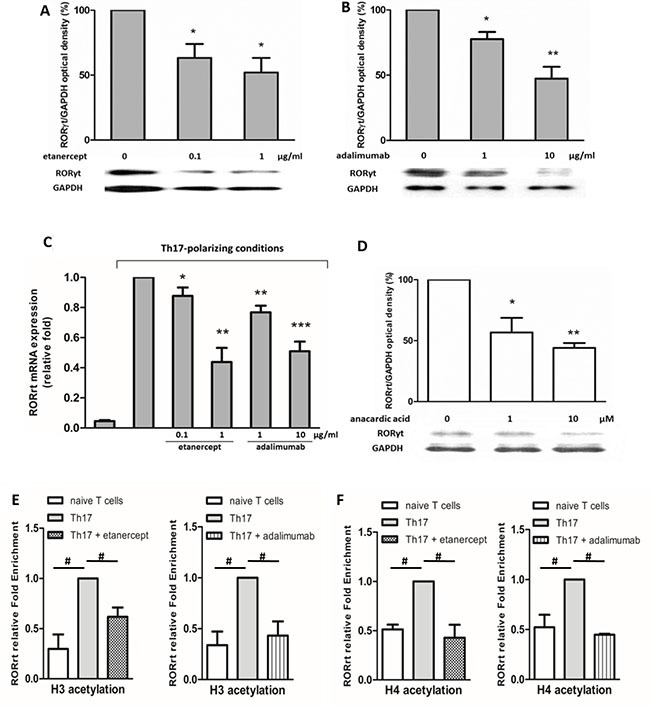Figure 5. Etanercept and adalimumab downregulate RORγt expression in human Th17-polarized T cells via histone acetylation.

Western blot analysis revealed that (A) etanercept (0.1 and 1 μg/ml) and (B) adalimumab (1 and 10 μg/ml) suppressed RORγt expression 24 h after Th17 polarization. (C) Real-time quantitative PCR was used to evaluate RORγt mRNA expression in CD4+ T cells after the cells were cultured under Th17-polarized conditions for 12 h with or without pretreatment with TNF-α inhibitors for 2 h. The results represent the means ± standard deviations of three independent experiments. (D) Pretreatment with anacardic acid (an acetyltransferase inhibitor) suppressed RORγt expression 24 h after Th17 polarization. For western blot analysis, the standard deviations of the optical density data were calculated from three independent experiments, and one experiment representative of the set of three is shown. *P < 0.05, **P < 0.01 and ***P < 0.001 between Th17-polarized conditions with and without TNF-α inhibitor pretreatment. ChIP analysis revealed that histone (E) H3 and (F) H4 acetylation was decreased by etanercept (1 μg/mL) and adalimumab (10 μg/mL) 6 h after Th17-polarization. The standard deviations of the ChIP data were calculated from four independent experiments. #P < 0.05.
